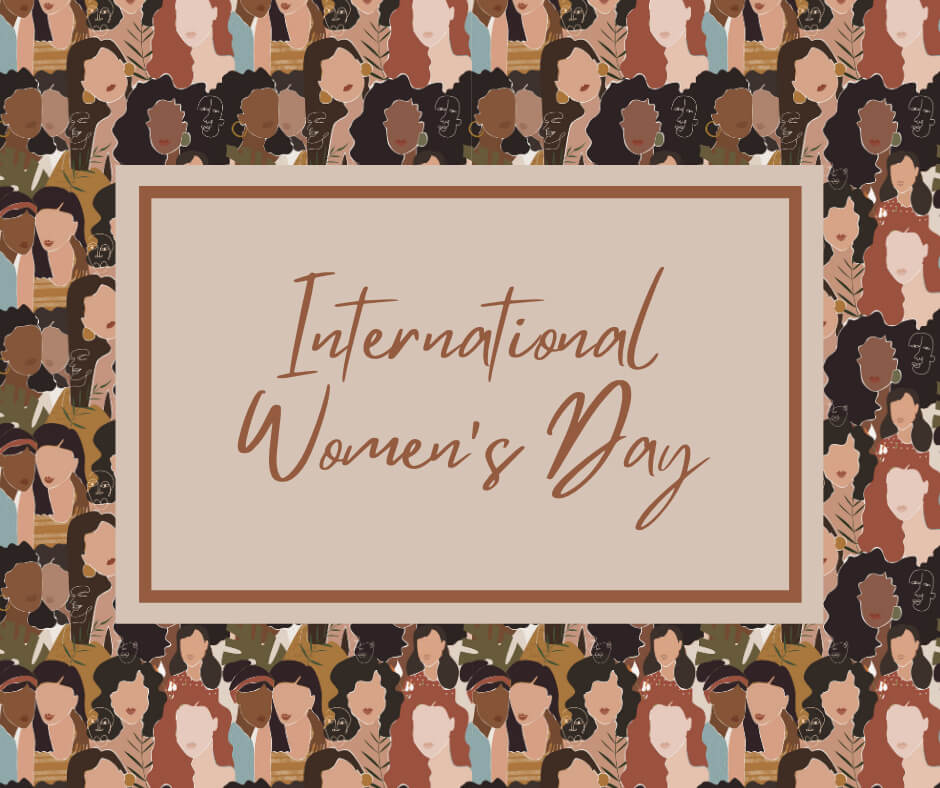Disclaimer: Affiliate links are used in this blog post. Please see our Affiliate Links policy in our Terms & Conditions page for additional details.
Did you know, the United States has 12.3 million women business enterprises, and these businesses generate $1.8 trillion a year? Approximately 40% of U.S. businesses are women-owned business enterprises, including our SaaS startup. Ruoom Inc. is a woman-led, woman-owned & co-founded startup. At Ruoom, we’re a small business whose mission is to provide a service to small businesses. Though many of the brands we mention in this blog are well-known global brands, remember that every company started with an idea at one point.
Despite the complexities and difficulties of last year, 64% of new women-owned businesses were started by women of color last year, from a net 1,821 new businesses every day of 2020. Looking at that statistic more in-depth, this shows that women of color led the growth of women-owned businesses. Statistics, facts, and numbers aside (sorry – we’re a team of engineers), we encourage you to support women-owned businesses, minority women-owned businesses, black women business owners, and economically disadvantaged women-owned small businesses.
We cover many women-owned businesses and proudly celebrate and support female entrepreneurship. Why? Because 62% of women entrepreneurs cite their business as their primary income source. So, supporting women-owned businesses supports powerful business women who also carry the title of mother, daughter, aunt, sister, grandmother, godmother, and plenty of other titles we honor every day.
Women Business Leaders: 2010 to Present Day
Extremely well-known brands we know of in 2021 once started small with just an idea or concept. Between 2007 and 2012, Latina women-owned business enterprises grew more than 87%, a significant expansion in only five years. Uncoincidentally, within this timeframe, two ubiquitous women founded lifestyle brands opened up shop and never looked back.
Tata Harper (2010)
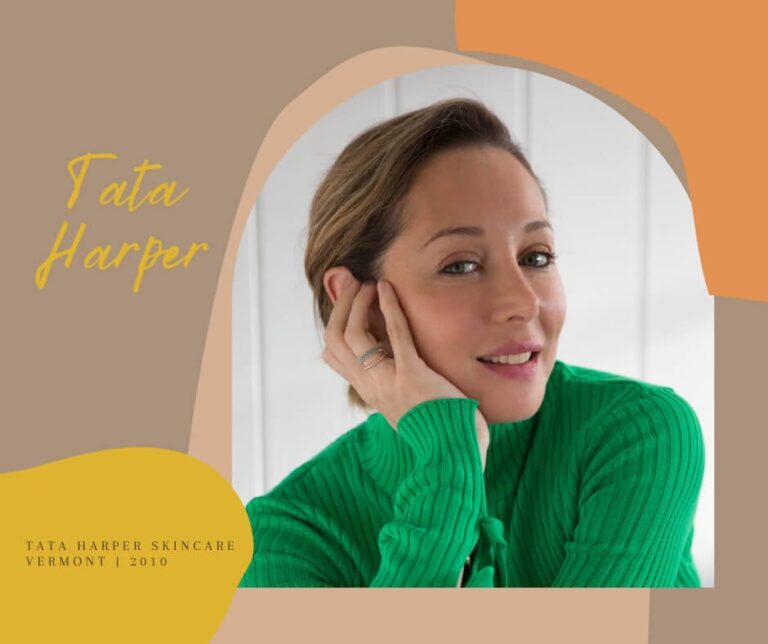
Identifying a gap in the beauty market for luxury, all-natural skincare companies, Tata and Henry Harper opened their own business in 2010, Tata Harper Skincare. Both originally from Barranquilla, Colombia, the duo had a few stints in Miami and NYC until finally relocating to a 1,200-acre organic farm in Vermont’s Champlain Valley, which now also serves at the production site for all Tata Harper Products. Now over a decade later, with a long list of celebrity and high-profile customers, her namesake brand is valued at more than $65M with Forbes calling Tata the “Queen of the green skincare movement.”
Tata Harper’s products are available just about anywhere that sells luxury beauty brands like Credo Beauty (US), Cult Beauty* (UK), or directly through Tata Harper Skincare, tataharperskincare.com.
*Also a female-founded company.
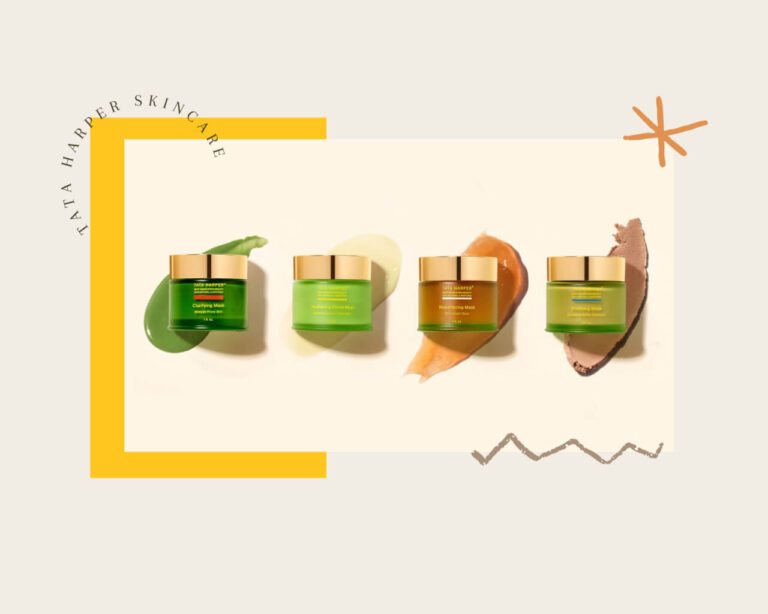
The Honest Company (2011)
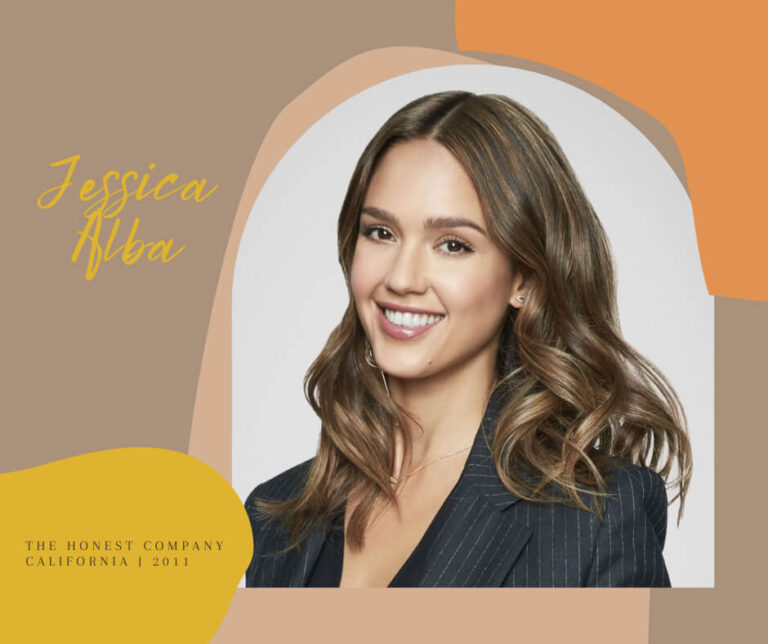
Many, if not most, companies are born out of the need to fulfill a personal need. The Honest Company, founded by actress Jessica Alba, sought to find alternative baby products after her first child’s birth in 2008. The consumer goods brands sell a variety of products marketed as eco-friendly and safe. In 2015, the company opened the Honest Beauty brand as a separate entity, launching 17 skincare products and 66 piece makeup range. The following year, the company was said to have made $250 million in sales, and by 2017, The Honest Company was valued just shy of $1 billion.
Honest Beauty is available at Target, Ulta Beauty, and directly through The Honest Company website, honest.com.
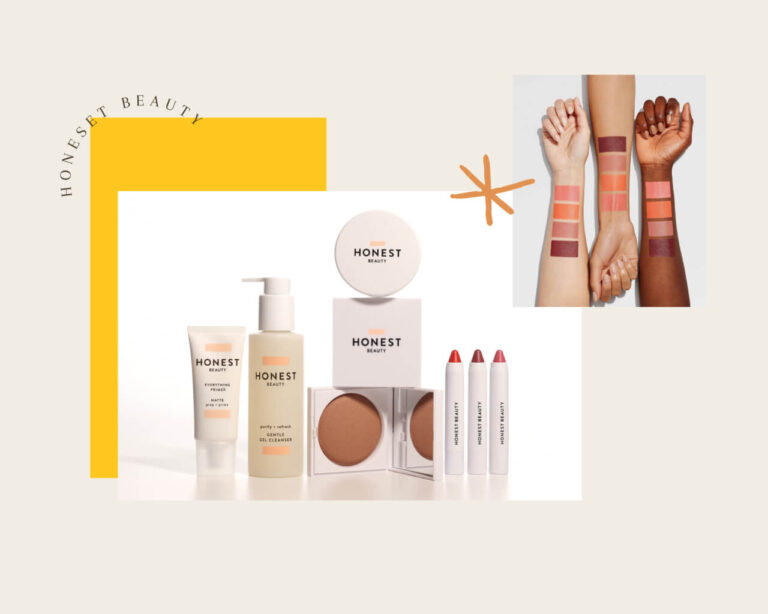
Both founders are examples of successful women business leaders that built global brands within the last decade. In present times, with direct marketing access to customers through social media, better business tools, and more options for crowdfunding and venture capital, there has been a massive growth in female entrepreneurship, with approximately 114% more women entrepreneurs than 20 years ago. To keep with our chronological list, we show our support for women-owned business enterprises founded each year up until 2020.
Soko Glam (2012)
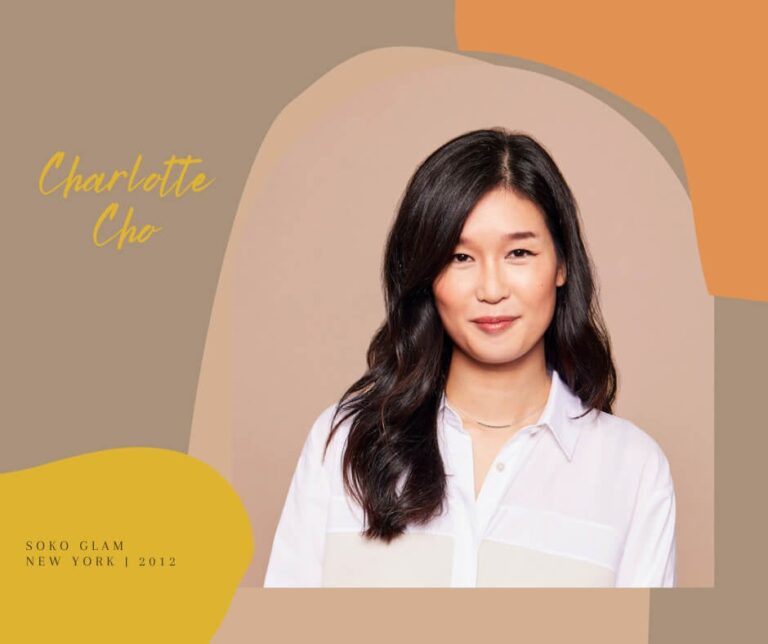
Headquartered in New York City, Soko Glam is a curated online marketplace specializing in Korean beauty (K-beauty) products. The brand founded in 2012 by esthetician and author Charlotte Cho, revered as a prominent contributor to the widely popular K-beauty evolution in the U.S., and her husband, businessman, and retired army veteran, David Cho. The company is considered one of the biggest and most trusted providers of K-beauty products in the United States. Besides the online marketplace, the brand also runs the popular skincare blog, The Klog, and created two successful private label skincare brands: Then I Met You and Good (Skin) Days™. Both brands and other carefully curated K-beauty products are available through sokoglam.com.
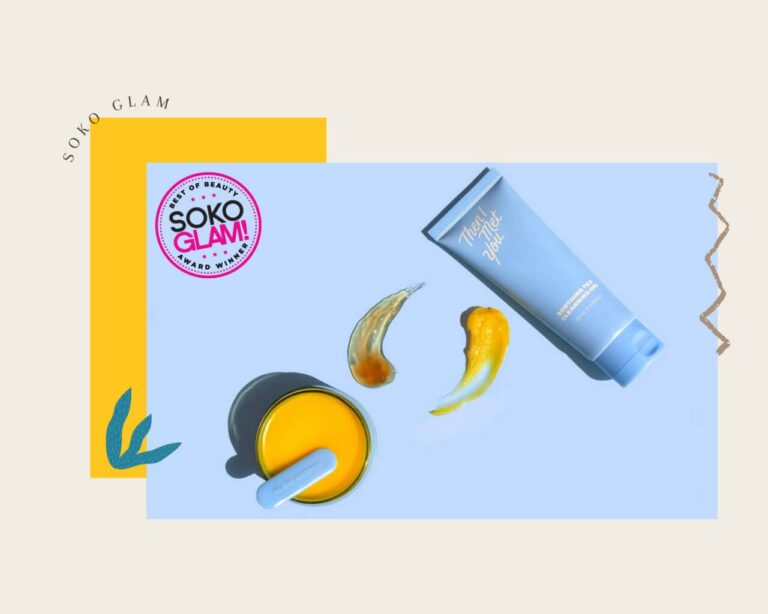
Briogeo (2013)
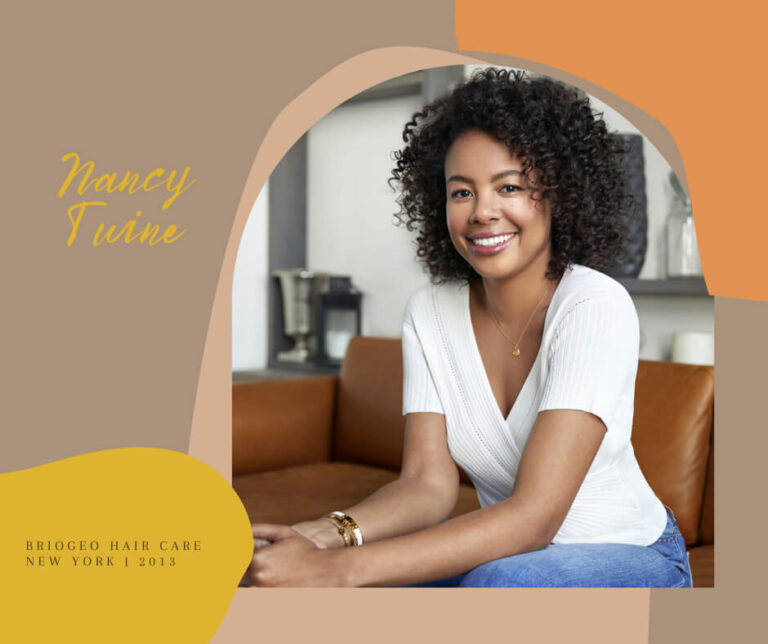
It was once pretty challenging to find a mainstream, black-owned haircare brand committed to “clean” ingredients, but that changed in 2013 when Nancy Twine started Briogeo in her East Village Apartment in NYC. Rooted with her grandmother’s beauty recipes, Briogeo has grown into a haircare brand with eight different product lines and a growing legion of loyal patrons. Ms. Twine made history as the youngest black businesswoman to ever launch a line at Sephora. Briogeo’s products are available at Sephora, Ulta, or the brand’s website, briogeohair.com.
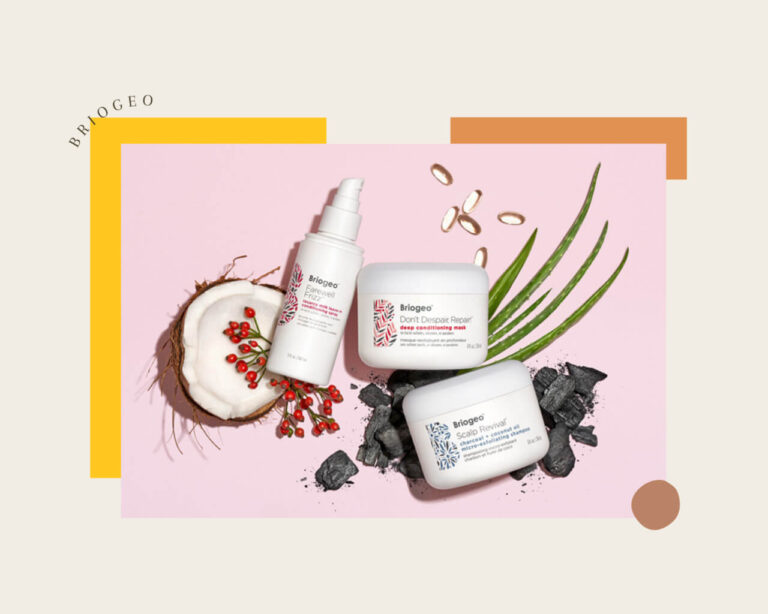
LOLA (2014)
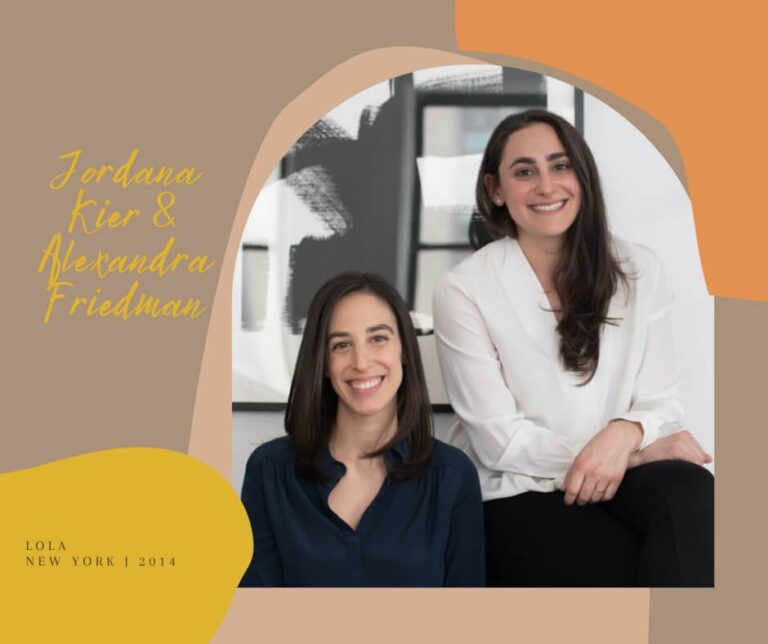
Founded by college friends Jordana Kier and Alexandra Friedman due to the lack of transparency around feminine care products. As consumers, Kier and Friedman had difficulty finding what they were looking for: honest disclosure on products, simplified design, and a way to integrate into busy lifestyles easily. LOLA offers 100% organic cotton tampons, provides ingredients on product packaging, and offers a subscription service to eliminate an errand run. LOLA has expanded its product offering to other reproductive health products and has extensive advocacy and give back programs, partnering with leading nonprofits supporting period equity and access. To date, LOLA has donated over 5 million period products to 501(c)(3) nonprofit I Support The Girls.
Last year, LOLA expanded to brick and mortar and can now be purchased Walmart. The brand sold more than 10 million feminine care products through Walmart since kicking off the partnership in March 2020. Of course, you can still order LOLA products and learn about their advocacy programs at mylola.com.
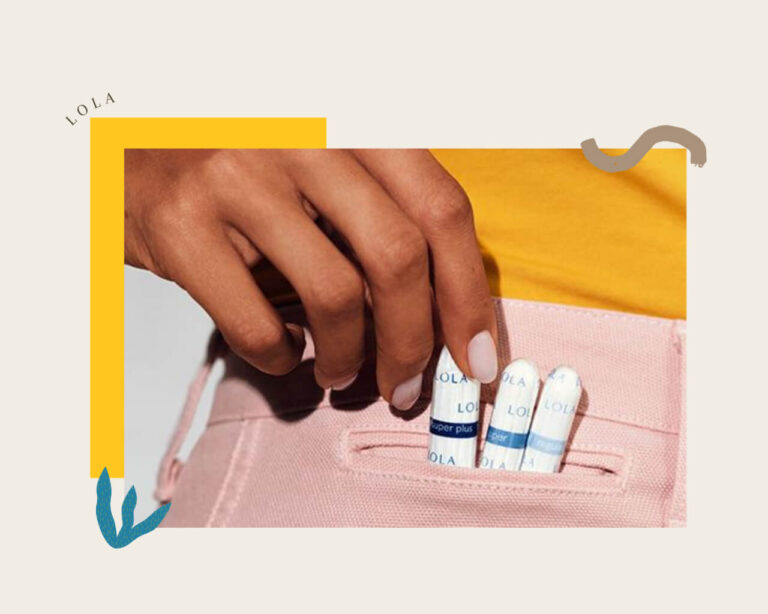
Daily Harvest (2015)
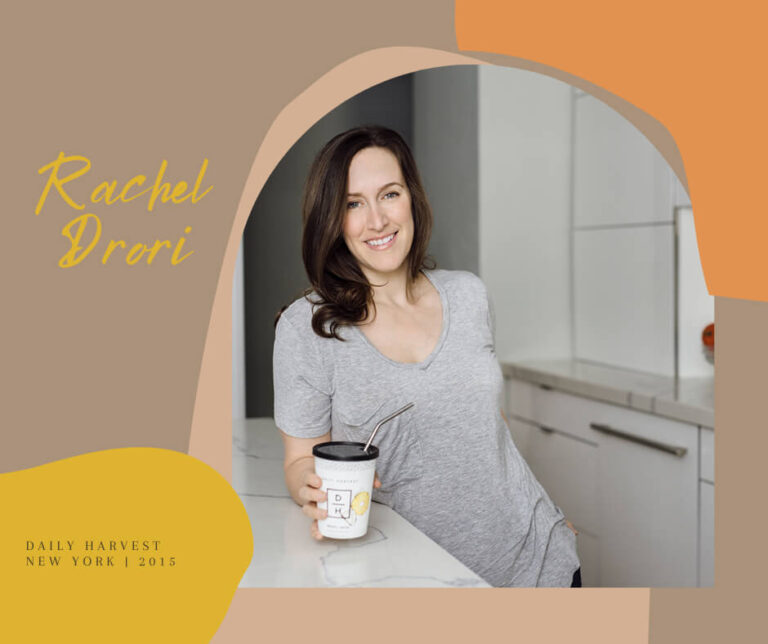
Daily Harvest was founded in 2015 by Rachel Drori. Daily Harvest is a prepared meal delivery service that sends customers ready-to-eat, frozen, vegan-based smoothies, veggie bowls (called Harvest bowls), flatbreads, plant-based milk, desserts, and snacks with minimal prep. The concept of ready-in-a-snap foods built on organic fruits and vegetables was, once again, built on the founder’s personal need for convenience without sacrificing nourishment. Since launching nationwide in 2016, Daily Harvest has become one of the fastest direct-to-consumer brands. In 2018, the company was named one of Fast Company’s “World’s Most Innovative Companies.”
The Daily Harvest website states they deliver to ’95 percent of the continental United States.’ To check if you’re in the delivery zone, visit daily-harvest.com.
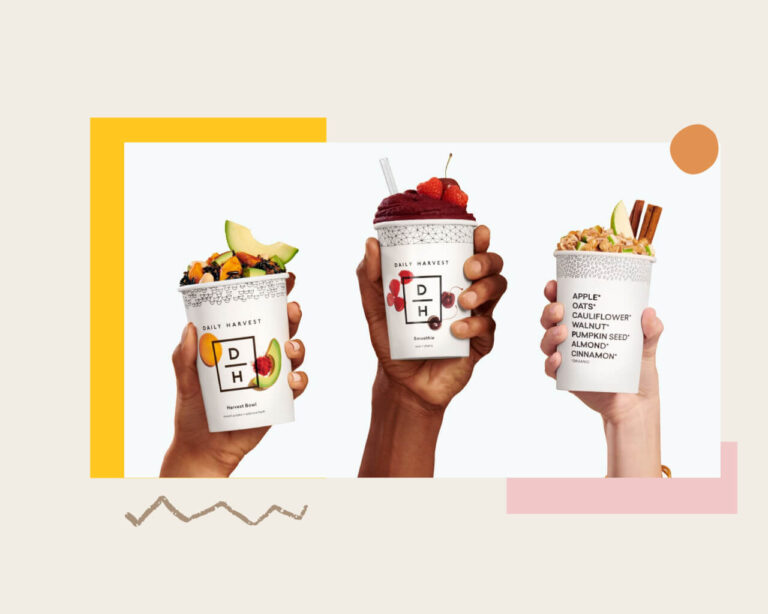
Partake Foods (2016)
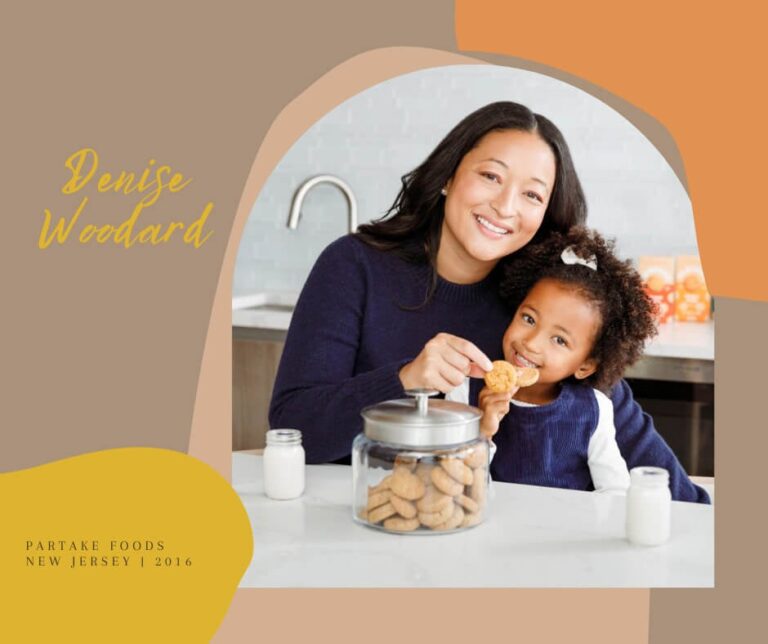
Fulfilling a personal need was a family affair for Partake Foods. As an infant, the daughter of Denise Woodard, Vivienne, was diagnosed with severe food allergies. Ms. Woodard became frustrated with the lack of safe and delicious options. She decided to leave her long-time job at Coca-Cola to start Partake Foods. The brand creates products that are free of the top 12 allergens so everyone in the family can enjoy a delicious treat. Ms. Woodard is hugely active in promoting black women business owners, female entrepreneurship, and increasing the opportunity for women and people of color aspiring for careers in the food and beverage industry. Partake Foods created The Black Futures in Food & Beverage fellowship program, welcoming active juniors and above from HBCU interested in exploring a career in the sector of CPG food & beverages.
Partake products are available at major retailers such as Kroger, Target, Whole Foods, and directly at partakefoods.com.
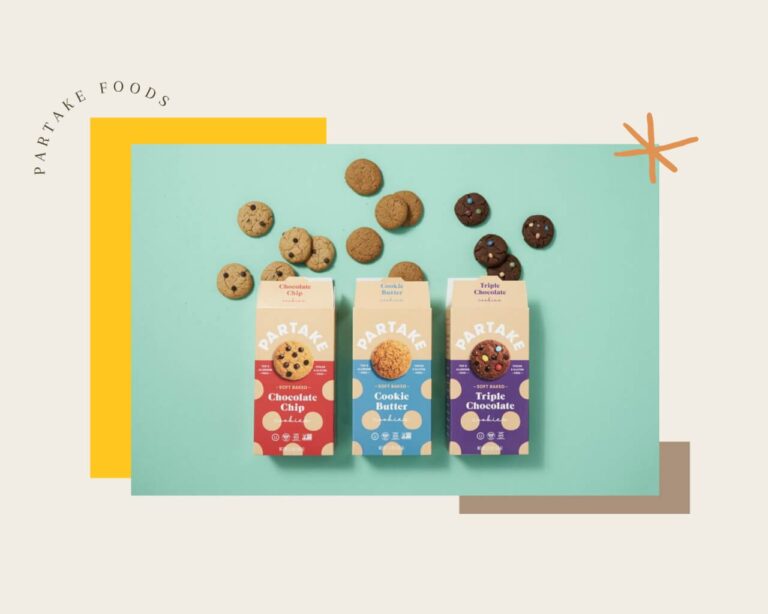
Summersalt (2017)
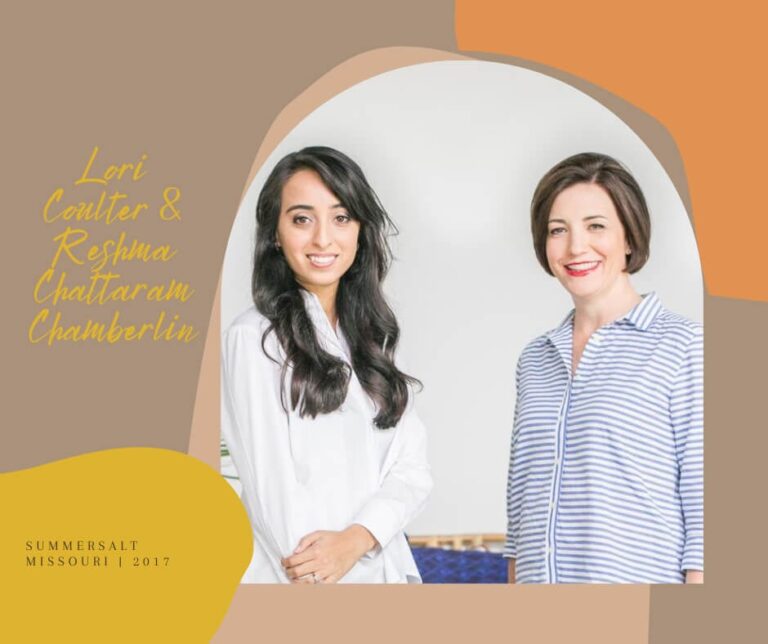
This direct-to-consumer swimwear company is a generation-defining brand launched by former Washington University design professor and swimwear designer Lori Coulter and marketing and branding consultant, Reshma Chattaram Chamberlin. At a $95 price point with swimwear made from recycled materials, Summersalt created low-barrier to entry, approachable and well-designed products without the high-end designer price tag. Impressively data-driven, Summersalt took over 1.5 million body measurements from 10,000 women. Summersalt has built a loyal customer base in just a few short years and expanded its line to activewear, sleepwear, knitwear, and loungewear all available through summersalt.com.
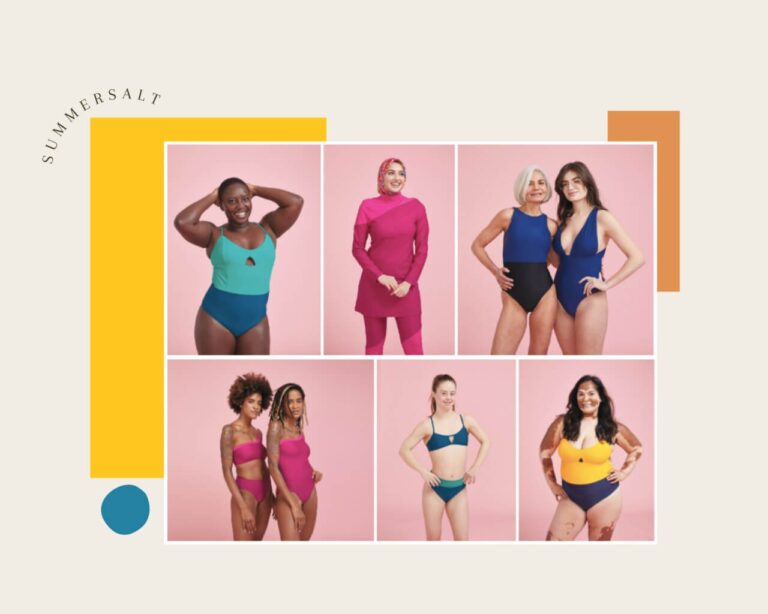
Brightland (2018)
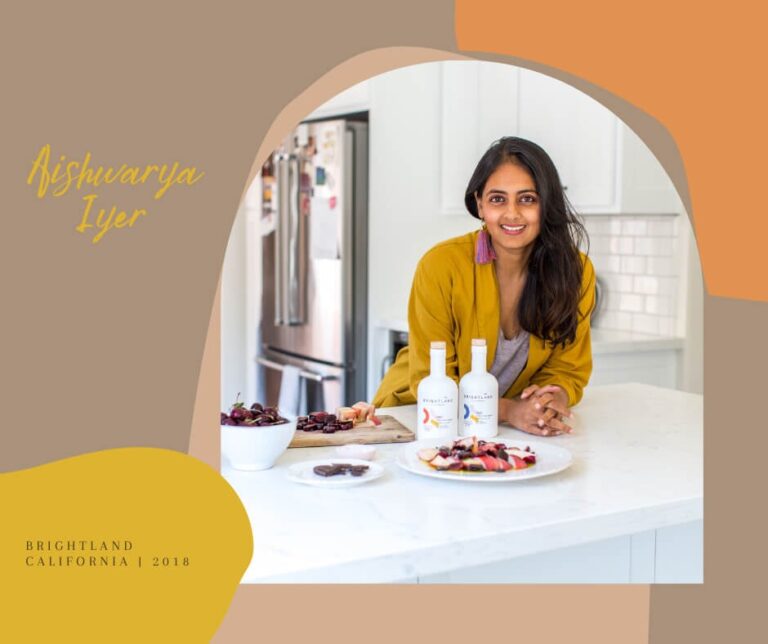
A direct-to-consumer startup delivering high-quality, California-made olive oils, Brightland aims to give home cooks honest, top-quality olive oil that is as elevated as it looks. Founded by Aishwarya Iyer in 2018, when she discovered not every bottle of EVOO is created equal. The company meticulously looked at all details of olive oil distribution, from harvesting to packaging. Brightland olive oil is made from hand-picked, organic heirloom olives and harvested early. Once milled, the Brightland olive oil is packaged in a UV-powder-coated glass bottle, protecting the contents from light damage. Brightland olive oil has a sharper, peppery taste than conventional olive oil and more polyphenols – the antioxidants linked to lowering cholesterol and blood pressure. Taste aside, we eat with our eyes, and Brightland wins at olive oil branding. With sleek labeling and custom artwork, the all-white bottle immediately differentiates the brand well before a consumer even tastes the product. Order Brightland olive oil and vinegar products through retailers such as Food52 and directly through brightland.co.
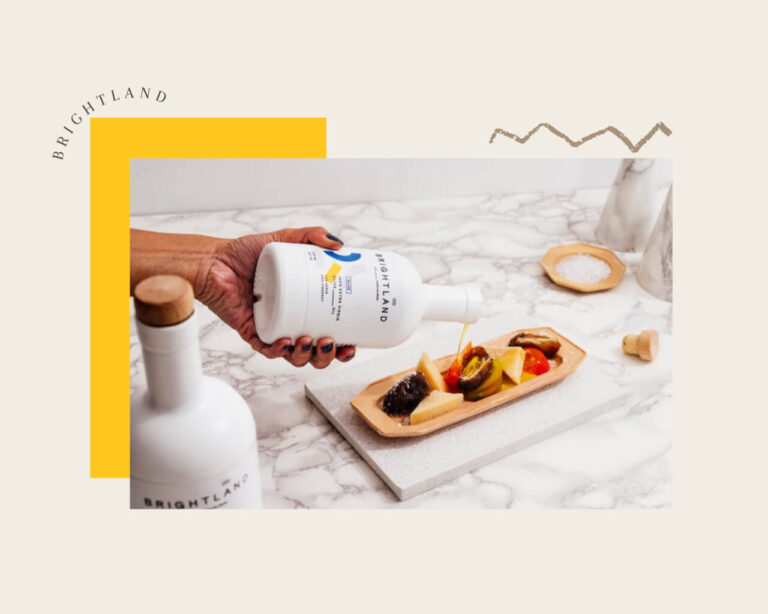
Our Place (2019)
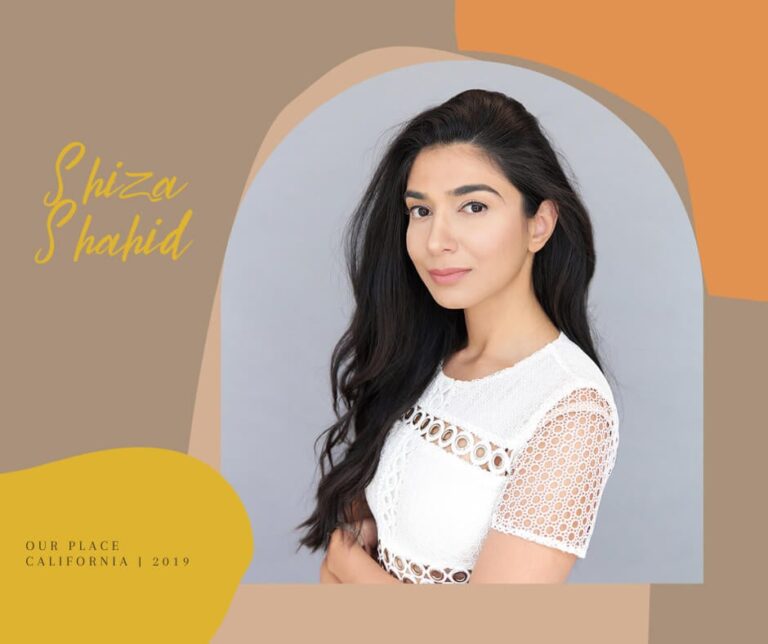
Not every successful businesswoman has also mentored a Nobel Laureate, but that’s what Malala Fund co-founder, Shiza Shahid, was doing before launching kitchenware startup, Our Place. In 2016, newly married, Ms. Shahid found conventional cookware sets bulky, huge, and overwhelming. Along with her husband, Amir Tehrani, the couple spent two-years making sketches and working with product designers to create the Always Pan, a $145 multifunctional cookware item that has amassed a cult following. In April 2020, Oprah appointed the Always Pan one of her Favorite Things. Based in Los-Angeles, the company became profitable in April of last year (yes, during the pandemic!) and tracked to hit $20 million in revenue by the end of 2020. Learn more at fromourplace.com.
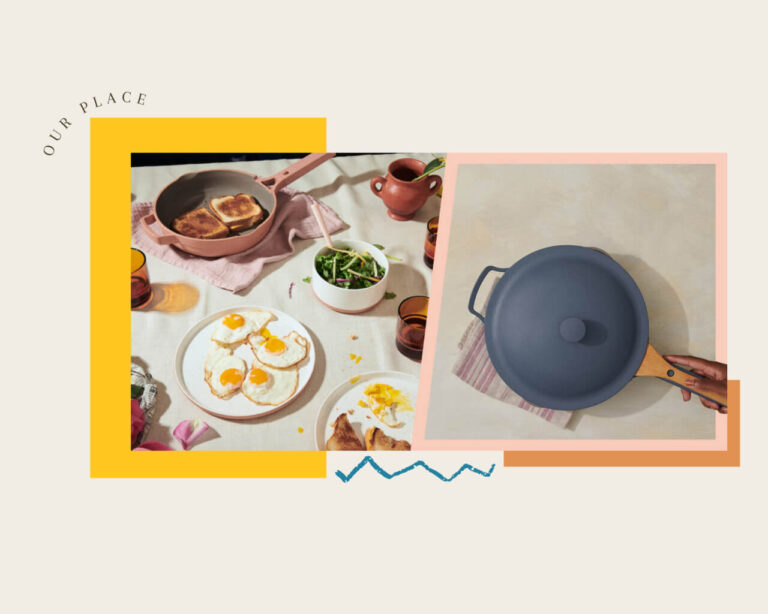
OMSOM (2020)
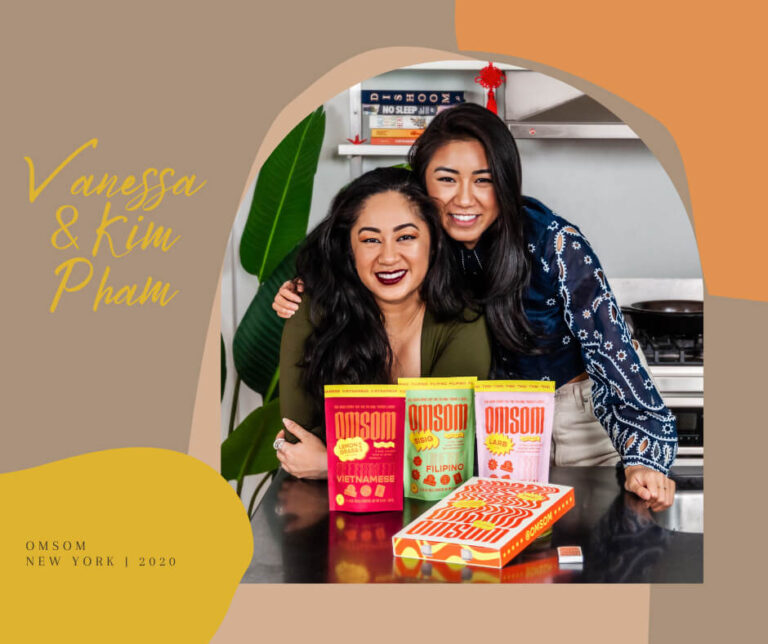
Named after the Vietnamese phrase meaning raucous and noisy, sisters Vanessa and Kim Pham co-founded Omsom as a tribute to their heritage and childhood. Daughters of Vietnamese refugees who, like many Asians, grew up with food as the ultimate love language. Celebrating Asian flavors, stories, and communities, Omsom currently sells Southeast and East Asian flavor starter packs, made in collaboration with prominent Asian-American chefs across the U.S. 30-minute meals take a new delicious twist with Omsom in your cooking arsenal. Give this new brand some love by ordering through their website, omsom.com.
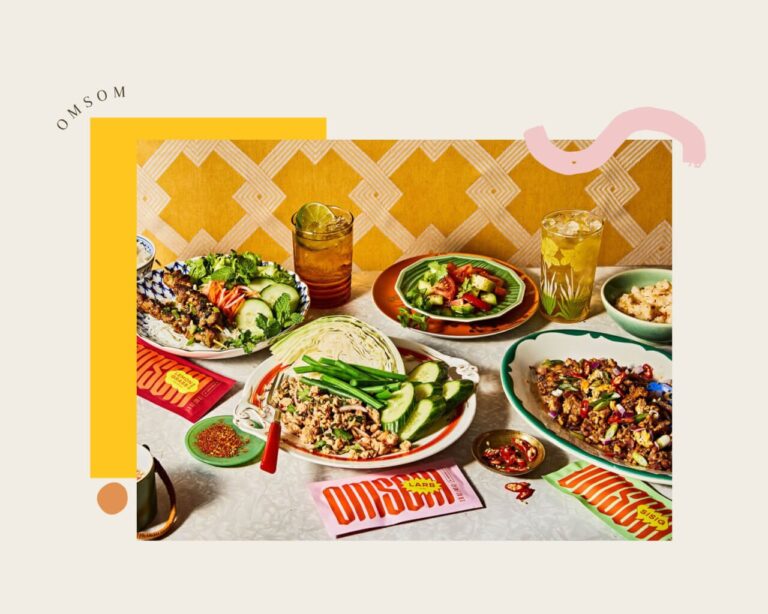
Making Room for You
To celebrate Women’s History Month, we’re here to show support for women-owned businesses, minority women-owned businesses, black women business owners, and everything in between. We hope you do the same.
At Ruoom, our motto here is: We Make Room for You Here. As a woman-led, woman co-founded tech startup, we’re here to make room for female entrepreneurship for many, many more years. To the strong, fearless, told-you’re-bossy, eager, overly ambitious, caring, putting-others-before-them, wonderful women business leaders: There’s room for you everywhere. Remember that.
Happy Women’s History Month.
Happy International Women’s Day.
“Here’s to strong women. May we know them. May we be them. May we raise them.”
